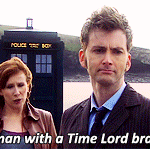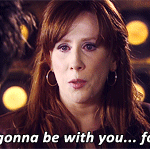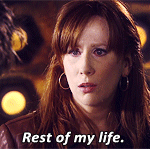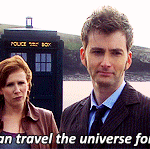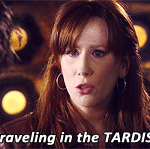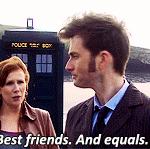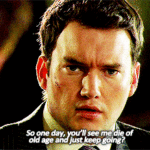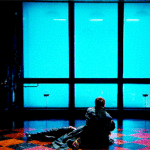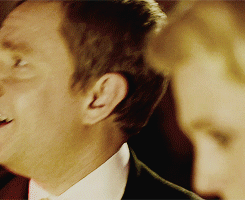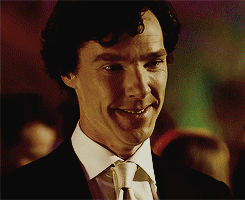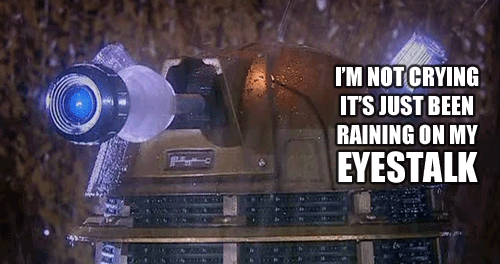What if, when Petunia Dursley found a little boy on her front doorstep, she took him in? Not into the cupboard under the stairs, not into a twisted childhood of tarnished worth and neglect—what if she took him in?
Petunia was jealous, selfish and vicious. We will not pretend she wasn’t. She looked at that boy on her doorstep and thought about her Dudders, barely a month older than this boy. She looked at his eyes and her stomach turned over and over. (Severus Snape saved Harry’s life for his eyes. Let’s have Petunia save it despite them).
Let’s tell a story where Petunia Dursley found a baby boy on her doorstep and hated his eyes—she hated them. She took him in and fed him and changed him and got him his shots, and she hated his eyes up until the day she looked at the boy and saw her nephew, not her sister’s shadow. When Harry was two and Vernon Dursley bought Dudley a toy car and Harry a fast food meal with a toy with parts he could choke on Petunia packed her things and got a divorce.
Harry grew up small and skinny, with knobbly knees and the unruly hair he got from his father. He got cornered behind the dumpsters and in the restrooms, got blood on the jumpers Petunia had found, half-price, at the hand-me-down store. He was still chosen last for sports. But Dudley got blood on his sweaters, too, the ones Petunia had found at the hand-me-down store, half price, because that was all a single mother working two secretary jobs could afford for her two boys, even with Vernon’s grudging child support.
They beat Harry for being small and they laughed at Dudley for being big, and slow, and dumb. Students jeered at him and teachers called Dudley out in class, smirked over his backwards letters.
Harry helped him with his homework, snapped out razored wit in classrooms when bullies decided to make Dudley the butt of anything; Harry cornered Dudley in their tiny cramped kitchen and called him smart, and clever, and ‘better ‘n all those jerks anyway’ on the days Dudley believed it least.
Dudley walked Harry to school and back, to his advanced classes and past the dumpsters, and grinned, big and slow and not dumb at all, at anyone who tried to mess with them.
But was that how Petunia got the news? Her husband complained about owls and staring cats all day long and in the morning Petunia found a little tyke on her doorsep. This was how the wizarding world chose to give the awful news to Lily Potter’s big sister: a letter, tucked in beside a baby boy with her sister’s eyes.
There were no Potters left. Petunia was the one who had to arrange the funeral. She had them both buried in Godric’s Hollow. Lily had chosen her world and Petunia wouldn’t steal her from it, not even in death. The wizarding world had gotten her sister killed; they could stand in that cold little wizard town and mourn by the old stone.
(Petunia would curl up with a big mug of hot tea and a little bit of vodka, when her boys were safely asleep, and toast her sister’s vanished ghost. Her nephew called her ‘Tune’ not ‘Tuney,’ and it only broke her heart some days.
Before Harry was even three, she would look at his green eyes tracking a flight of geese or blinking mischieviously back at her and she would not think ‘you have your mother’s eyes.’
A wise old man had left a little boy on her doorstep with her sister’s eyes. Petunia raised a young man who had eyes of his very own).
Petunia snapped and burnt the eggs at breakfast. She worked too hard and knew all the neighbors’ worst secrets. Her bedtime stories didn’t quite teach the morals growing boys ought to learn: be suspicious, be wary; someone is probably out to get you. You owe no one your kindness. Knowledge is power and let no one know you have it. If you get can get away with it, then the rule is probably meant for breaking.
Harry grew up loved. Petunia still ran when the letters came. This was her nephew, and this world, this letter, these eyes, had killed her sister. When Hagrid came and knocked down the door of some poor roadside motel, Petunia stood in front of both her boys, shaking. When Hagrid offered Harry a squashed birthday cake with big, kind, clumsy hands, he reminded Harry more than anything of his cousin.
His aunt was still shaking but Harry, eleven years and eight minutes old, decided that any world that had people like his big cousin in it couldn’t be all bad. “I want to go,” Harry told his aunt and he promised to come home.
Best tags so far omg:
# NOT THE AUNT PETUNIA GOTHAM WANTED# BUT THE AUNT PETUNIA GOTHAM DESERVED (via katiewont)
seriously though
bucky says you can’t die if you’re wearing the wrong dog tags (“it’s just not allowed”), and it’s part-joke, part-superstition, part-something else he can’t name
they start trading dog tags before missions as a silent promise to each other that they’ll both make it back in one piece, and eventually, they just stop trading back. something about carrying bucky’s name against his skin makes steve feel safer, braver
when bucky falls he takes steve’s name with him into the abyss instead of his own
steve still has bucky’s name around his neck when they pull him out of the ice
#(see? bucky says—years later; after the ice. after the torture. after the ruin and the war.) #(what did i tell you kid. my name around your neck—i’m not gonna let you die.) #(yeah? steve asks. his palm pressed over the place where bucky’s heart is beating.) #(and what about my name around yours?) #(bucky considers. touches the metal; metal fingertips.) #(your name? he says. slowly.) #(your name will bring me back from the dead.) (from srgebarnes)
Castiel shows up for Jack, a few weeks after he leaves Cardiff following Ianto’s death. In a battered, dark parking lot in Detroit, “Moon River” plays itself on a rock station on Jack’s jeep. Two old friends waltz, never speaking. Jack doesn’t weep, hasn’t yet, though misery paints itself over every stroke of his being. If his grip on Castiel is a little tighter than comfortable, the angel doesn’t seem to notice.
For now, neither one blames the other. The world’s children were saved at the cost of ninety-six people, Ianto among them, and if one of them failed, they both failed the same.
When it’s over, they’ll have very little to say to one another, so instead of searching for words, they keep on dancing. The radio obligingly plays waltz after waltz.
The radio station never does figure out how a classic dance station from Portland, Oregon hijacked their frequency.

